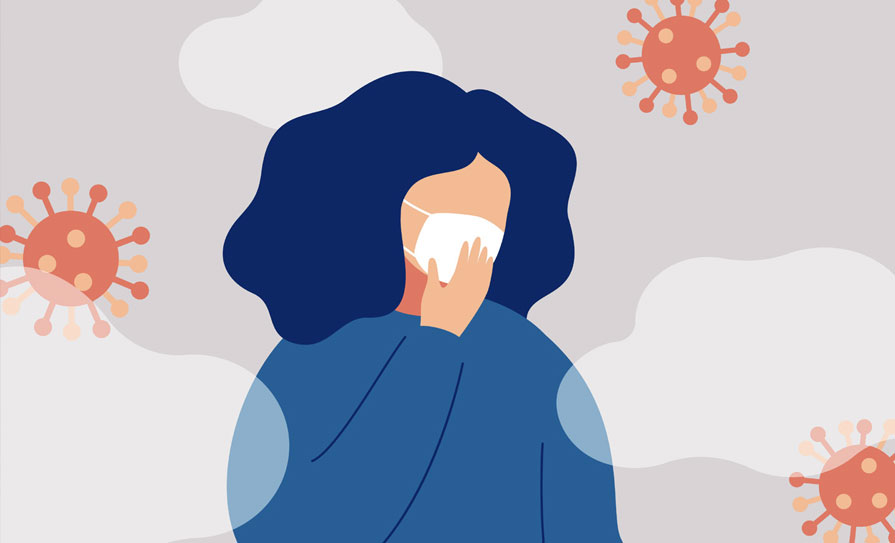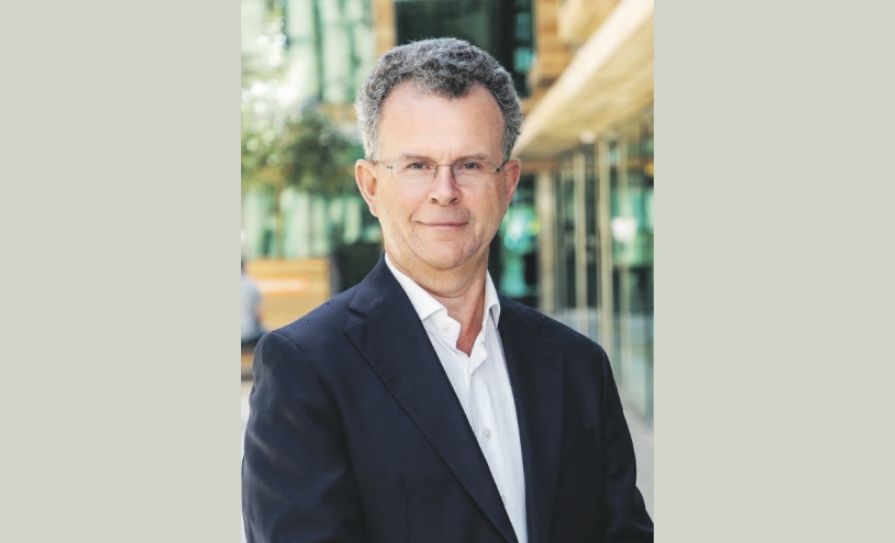After two years of Covid-19 restrictions during the traditional influenza season, this winter may hold some unique challenges for public health. David Lynch reports.
This year, talk about the upcoming influenza season started early. In July, politicians and leading figures within the HSE were highlighting the particular challenges that this winter will hold. A combination of the continuing Covid-19 pandemic, the near absence of pandemic restrictions compared to the last two winters, and concerning reports of influenza levels in Australia sparked this concern.
In mid-July, Minister for Health Stephen Donnelly was already warning about a potential ‘perfect storm’ this autumn, with a surge in Covid infections and a large outbreak of influenza.
Reflecting on winter influenza season in Australia, Minister Donnelly said that this country was planning for “a combination of an early flu season, a very significant flu season, together with a surge in Covid-19 regardless of a new variant of concern”.
The most recent Influenza Surveillance in Ireland – Summer Report, published by the Health Protection Surveillance Centre (HPSC), covers the month of July. It concluded that during that month “most indicators of influenza activity were at low levels in Ireland”.
“Sporadic influenza cases have been detected during this time, the majority typed/ subtyped as influenza A(H3). RSV [Respiratory syncytial virus] notifications remain low; however, [they] are at higher levels than the same time period in 2021.”
This trend will certainly change in the coming weeks.
Looking at the international scene at the end of July, the same HPSC report noted that “overall influenza activity remained at inter-seasonal levels in the European region. In the temperate zones of the southern hemisphere, overall influenza activity decreased in recent weeks”.
On the issue of the much commented upon high influenza levels in Australia, the HPSC report said that “laboratory confirmed influenza notifications in Australia have exceeded the five-year average”.
It added, however, that “caution is advised comparing Australian data to previous seasons due to changes to testing and surveillance systems during the Covid-19 pandemic”.
The June meeting of the national influenza planning steering group was the first meeting for the 2022/23 influenza season. According to the minutes seen by this newspaper following a Freedom of Information request, the possible establishment of a joint Covid-19 and influenza oversight and implementation group was discussed. Group members also discussed whether there would be a national immunisation operations lead and general issues surrounding leadership of the influenza vaccination campaign.
The minutes also noted how co-administration of the influenza and Covid-19 vaccine campaigns could be undertaken. Regarding healthcare workers (HCWs), it was proposed the group will be a “local decision to run Covid-19 and flu separately or together”.
Last month, the Medical Independent (MI) sent to the HSE a series of questions on matters arising from the minutes. However, the Executive spokesperson said it was “too early to provide responses” to several of the queries.
The HSE publicly launched its official influenza season vaccination campaign in early October last year, but the spokesperson did not provide a date for when the 2022/23 campaign will be officially initiated.
However, on the matter of possible co-administration of influenza and Covid vaccination, the spokesperson said “the HSE is working to operationalise the Covid-19 booster programme in line with the recent national immunisation advisory committee (NIAC) recommendations”.
“Where practical co-administration with flu is being considered as part of this process.”
This year’s campaign is “being worked up at the moment” and will be available for influenza season launch at www.hse.ie/flu, the spokesperson added.
In a recent update, dated 8 August, the World Health Organisation (WHO) recommended that countries “monitor the co-circulation” of influenza and Covid-19.
“They [countries] are encouraged to enhance integrated surveillance and step-up their influenza vaccination campaign to prevent severe disease and hospitalisations associated with influenza.”
In the same update, echoing the HPSC, the WHO said that current influenza surveillance global data should be interpreted with caution “as the ongoing Covid-19 pandemic has influenced to varying extents health seeking behaviours, staffing/routines in sentinel sites, as well as testing priorities and capacities in member states”.
Ongoing developments in public health
In May 2021, public health specialists in the IMO voted to approve an agreement with the Department of Health, which included a commitment to establish 84 consultant posts, with 34 to be filled in the first phase. The recruitment process was to take place in three phases between June 2021 and December 2023.
According to figures provided to the Medical Independent (MI) in August, almost all of these 34 first phase appointments have been made. The outstanding appointments include the appointment of a national director of public health and a national health protection surveillance position, both of which are currently in second round campaigns, according to the HSE.
At the IMO AGM in late May, concerns were raised that funding for the second round of public health consultant posts had yet to receive sanction from the Department of Public Expenditure and Reform (DPER).
However, a DPER spokesperson confirmed to MI that sanction for these posts had since been approved.
When this entire process is completed, will there still be some specialists in public health medicine working alongside new consultants?
“The HSE is committed to the reform of public health, the introduction of a consultant-led and delivered public health model, and the phasing out of the grade ‘specialist in public health medicine’ as efficiently as possible,” a HSE spokesperson told MI.
“Where vacancies at specialist level arise during the reform implementation phase, the HSE can continue to recruit at specialist grade to meet service need. Unless there are exceptional circumstances, the HSE will seek to offer such posts on a fixed-term contract basis.”
In terms of the contract on which that the new public health consultants are being appointed, the spokesperson said that “in line with the Programme for Government, stated Government policy is that all future consultant posts will be to the Sláintecare consultant contract”.
“However, it is acknowledged that the terms of the new Sláintecare contract have not been finalised at this point and that the introduction of the grade of consultant in public health medicine must proceed.”
Outside of consultant status, the publication of the report from the public health reform expert advisory group is another big item on the horizon for public health.
The group was established in January. Last month, the Department of Health told MI that the group is “finalising their report with a view to submitting to the Minister for Health shortly”.
Earlier this summer, Dr Douglas Hamilton, Chair of the Irish Society of Specialists in Public Health Medicine, told MI it looked forward to the publication of the report.
“[We] hope that unlike many health system reports and strategies in Ireland, these findings will be fully implemented in a timely fashion so that when – not if – the next pandemic strikes we will be better prepared,” said Dr Hamilton.
“Various hygiene and physical distancing measures implemented by member states to reduce SARS-CoV-2 virus transmission have likely played a role in reducing influenza virus transmission.”
Hospitals
“We are very concerned about the forthcoming winter,” IHCA Vice-President Prof Robert Landers (University Hospital Waterford) said in a reply to a question from MI at the Association’s recent pre-Budget submission launch.
“We are coming off the back of a summer where we saw record numbers of people on trolleys and we are now facing a ‘twindemic’, of traditional flu combined with a resurgence of Covid most likely. Our worries for the flu season, in particular, are that the ground base-level immunity isn’t there in the population as a result of the Covid restrictions over the last number of years.
“I think Australia has seen a particular [bad] flu season this year, and traditionally we tend to follow the Australian pattern as we head into the winter. So we are very concerned, the bed capacity isn’t in the system to cope with any kind of surge. It comes back to the same points – we don’t have the beds and we don’t have the consultants to treat people if we get a significant surge over the winter. “
Looking ahead to the upcoming 2022/23 season in Ireland, public health doctors have re-emphasised the importance of the influenza vaccine.
In a reply to a series of questions from this newspaper, vaccine experts within the Irish Society of Specialists in Public Health Medicine (ISSPHM) noted “the most important thing is to ensure that people who are recommended to get the flu vaccine and Covid-19 booster vaccines are protected through vaccination”.
“That includes people aged 65 years and older, people with underlying medical conditions, healthcare workers, and pregnant women. Covid-19 and flu are both very large vaccination programmes that need resources, coordination and input from many sections of the health service, eg, HSE, GPs, pharmacists, acute hospitals.”
Asked if there was anything that has been done particularly well in recent years, in terms of the influenza vaccination roll-out, the ISSPHM replied that Ireland has a “very good uptake in our 65-plus age group, one of the best in Europe”.
“Access in GPs and pharmacies is really important. Having someone you trust recommending vaccination to you is also really important and that’s why a trusted GP, or pharmacist, is so important.”
The experts also noted that the peer vaccination programme for HCWs has been “very successful” and highlights the importance of making vaccines accessible to those for whom they are recommended.
With the continuing challenges of Covid, does the ISSPHM see any possibilities for greater alignment between the influenza and Covid-19 vaccination systems?
“It should be aligned where NIAC has recommended this should be done,” the Society told MI.
“But there are challenges in view of the timing of Covid-19 booster doses after the last dose and after past infection. We don’t want people to delay the flu vaccine if they can’t get a Covid-19 booster dose yet.”
GPs
Speaking to MI in August, IMO GP committee Chair Dr Denis McCauley said that GPs remained the “main vaccinators… history has shown, even prior to Covid, that we were the main vaccinators when it came to the flu vaccination and Covid confirmed that”.
Dr McCauley said he would expect general practice to administer the influenza vaccine “as we normally do” this season; however, with a few different factors.
“We would feel that this year there is a certain amount of the population who haven’t really had flu for a number of years [during the pandemic], and there is not great immunity there,” he said
“The Australian experience is a bit chastening, so we need to make sure that we have a good roll-out of the [influenza] vaccine this year.”
Because of the increased openness of society this winter compared to the last two influenza seasons during the pandemic, Dr McCauley said that this coming season will “without a doubt” be different than 2020 or 2021.
The Australian experience is a bit chastening, so we need to make sure that we have a good roll-out of the [influenza] vaccine this year
“People are being respectful [around Covid], but they are back to normal…,” he said, adding that much of the population is now influenza ‘naïve’ (many people have not had influenza for a few years).
Looking at the situation in Australia in recent months, he said that presently it is not known what the influenza season will be like in Ireland.
“But the best way to plan for that is to make sure that those people who are at highest risk get [vaccinated] for themselves… but it will also help the hospital services.
“Because remember the hospitals are already very busy. There is a capacity issue, there are not enough consultants, or NCHDs or nurses, so the hospitals even during the summer are working on vapours. So, if there is any increase in the workload that is going to be difficult. For their own health and the extra workload that it could potentially apply to the hospitals, it is much better that people get it.”
In terms of services within primary care, Dr McCauley added that “because general practice is having severe capacity issues”, they have requested that the over-70s receiving their Covid-19 booster vaccine could, at the same time, be administered their influenza vaccine.
He said that vaccination of other groups will also take place “in association with the pharmacists also”, but he noted that “generally the over-70s come to their doctor [GP]”.
Regarding the administration of the influenza vaccine during the pandemic, Dr McCauley said that the “initial year [2020] the uptake of the flu vaccine was superb”. He attributed this level of uptake to wider concerns and worries around Covid-19 infection. He pointed out that last year “there was still a good uptake, but we started to worry about possible vaccine fatigue”.
Future
From a public health perspective, has the pandemic had an impact on the way vaccination is delivered in Ireland, for the better or worse?
“Making vaccination accessible is very important,” the ISSPHM told MI.
“There have been really good examples of mobile vaccination teams delivering Covid-19 vaccines to people in nursing homes and to people who are housebound.
“Large vaccination clinics are great for vaccinating big numbers quickly, but it’s also important to make vaccines available to people in their own communities. GPs, in the main, vaccinated older people and we had really high uptake in this group.”
The Society said that more could be done to ensure people from “underserved communities are vaccinated”.
However, the ISSPHM warned that this “is resource intensive and there are so many challenges in our health service, including over-stretched GPs, etc”.
“Engagement with communities themselves to actively promote vaccination is also important but needs to be resourced.
“Having a national immunisation system is crucial – we have seen how important this has been for Covid-19 – but we don’t have this for our other vaccines, eg, childhood vaccines. This should be seen as a major priority and implemented urgently.”
HCWs
In recent years, the HSE has placed a particular focus on increasing influenza vaccine uptake among HCWs. There is evidence that levels improved during the first winter of the pandemic, but declined last year.
In August, the HPSC released a report on HCWs’ influenza vaccine uptake for the 2021/22 season. It concluded there had been a “reduction in both uptake and participation in comparison to the previous season when uptake reached a high-water mark during the peak of the Covid-19 pandemic in 2020”.
“In 2020-2021, uptake among all hospital-based HCWs was 71.0 per cent (71.4 per cent among HSE hospitals), considerably more than the 64.0 per cent (64.5 per cent among HSE hospitals) recorded during the current season [2021-22].”
However, the HPSC report noted that, as was the case in the previous season, HCWs (both HSE and non-HSE) were entitled in 2021/2022 to obtain free vaccination in the primary care setting if it was more convenient for them to do so.
“It is possible, therefore, that some HCWs, who were vaccinated in these settings, may not have reported their status to their workplace managers, and, as a result the uptake reported would have been less than what it actually was.”













Leave a Reply
You must be logged in to post a comment.